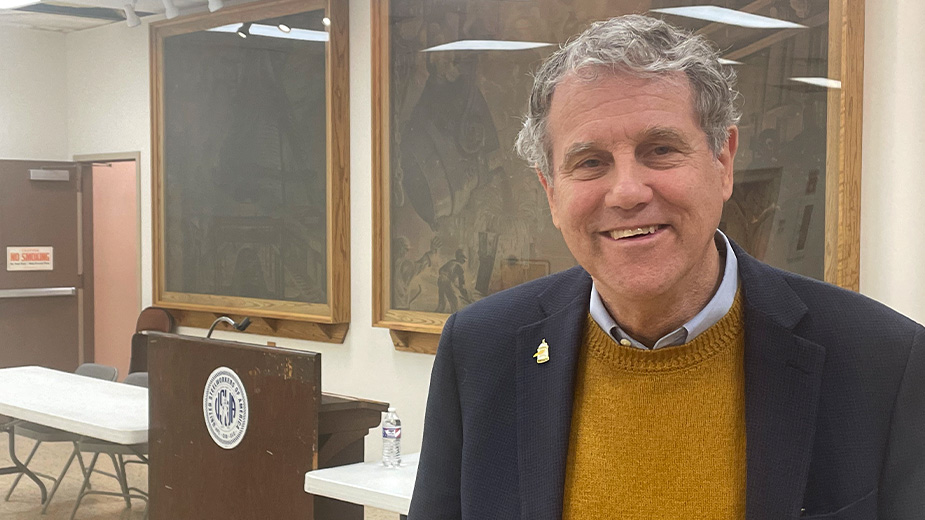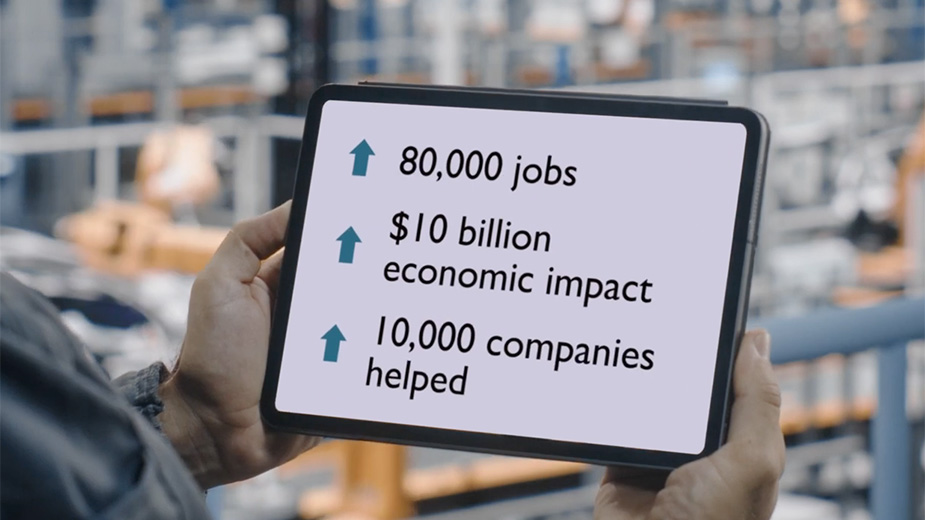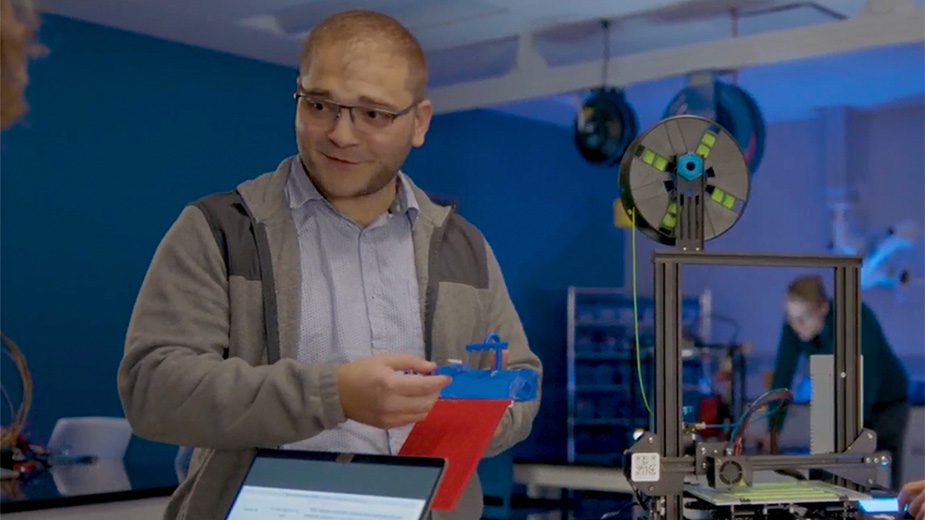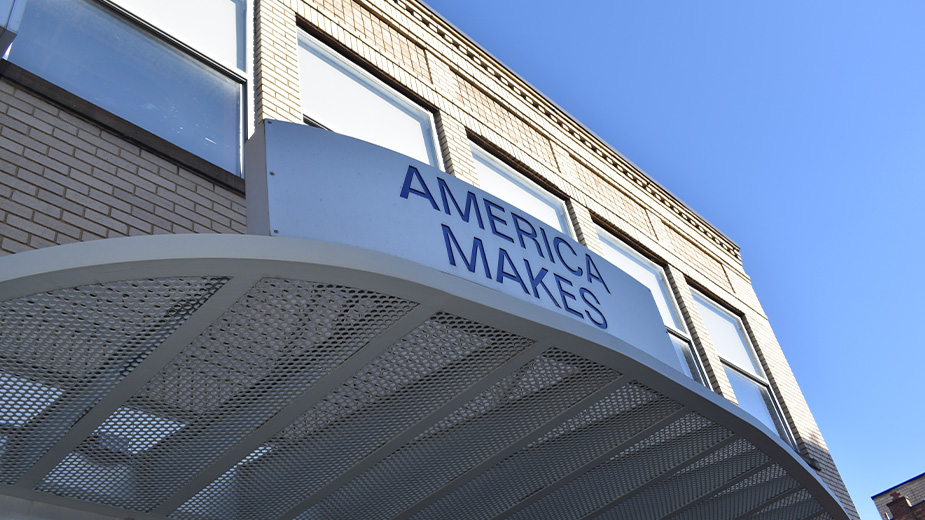Brown Calls for Trade Reforms that Protect American Workers
WARREN, Ohio – U.S. Sen. Sherrod Brown on Wednesday vowed to oppose any international trade agreement that doesn’t contain enforceable labor standards and provisions that protect American workers.
The Ohio Democrat – joined by labor and business representatives – stopped at the United Steelworkers Local 1375 union hall Wednesday morning to discuss the legacy of past agreements and efforts underway to ensure U.S. industry and its workers remain competitive.
“Instead of negotiating new trade agreements, we should be focusing on trade enforcement to create a level playing field so that American workers can compete,” the senator said.
Recently, Brown was influential in convincing other colleagues in the U.S. Senate to oppose trade provisions in the Biden administration’s Indo-Pacific Economic Framework. The pushback was instrumental in forcing the administration to remove the trade language.
“The proposed trade pillar was shaping up to be more of what presidents of both parties have done in the past,” Brown said. “The trade deal had no real labor standards,” he noted, adding the framework was negotiated without worker representation and behind closed doors.
Trade agreements initiated from both Democratic and Republican presidents in the past have backfired on the American worker, Brown said, citing pacts such as the North American Free Trade Agreement, or NAFTA, signed by President Bill Clinton during the early 1990s.
The Biden White House proved no different, Brown added.
“I made it clear to the administration that it was unacceptable,” he said.
Brown and Sen. Todd Young, R-Indiana, introduced last year the Leveling the Playing Field 2.0 Act, a bipartisan bill that would step up enforcement efforts against countries such as China that they say circumvent U.S. trade law. Last March, Brown and North Carolina Republican Thom Tillis also introduced the Trade Cheats Act, which would allow companies to use their own resources to fight against bad actors.
Brown said China has persistently eluded U.S. tariffs by shipping its manufactured goods to other countries, where these goods are modified slightly and then shipped to the United States. This process makes it appear that the product was manufactured in a country outside of China, thereby evading trade penalties.
“Leveling the Playing Field will stop that,” Brown said. “It will mean that labor standards need to be enforceable. It will mean environmental standards need to be enforceable.”
Donnie Blatt, director of USW District 1, said the U.S. steel industry operates with the best environmental safeguards in the world, but he fears additional regulations could hamper competitiveness, since other countries do not abide by the same standards.
“Right now the EPA [Environmental Protection Agency] is talking about reviewing some of the rules that we live under that could make us uncompetitive and could cause closures in the steel industry,” he said.
Blatt urged the senator and the EPA to make sure any new regulations or changes do not come with significant costs to the industry. “That’s all part of leveling the playing field. The folks that we compete with overseas – they don’t do the things that we do.”
Guy Coviello, president and CEO of the Youngstown/Warren Regional Chamber, said the Mahoning Valley is poised to see significant manufacturing gains in the future, buoyed by the potential Kimberly-Clark project slated for Warren.
“The Mahoning Valley is experiencing a generational opportunity to grow its economy through modern, high-tech, advanced manufacturing, warehousing and distribution,” Coviello said. “We can’t let an unlevel global playing field impede that growth. Sen. Brown’s Leveling the Playing Field 2.0 and Fighting Trade Cheats Act would protect the Valley’s industrial base and allow us to more fully grow our economy.”
He added that measures such as Brown’s legislation would help protect the Mahoning Valley’s industrial base. “It definitely would help to level the playing field in terms of foreign competition for our manufacturers,” he said.
However, such measures could cause higher prices for components that local companies source from overseas, Coviello said.
“It’s a balancing act,” he said. “We have companies that rely on supply chain costs that potentially could go up but, overall, we think it’s very important to level the playing field with ways that he’s proposing.”
Coviello said other measures such as expediting permit processes for construction would also help accelerate growth in the region. As it stands, the permit process is quite burdensome for companies considering expansions or building new plants.
“It hinders economic development, for future projects here,” Coviello said.
Pictured at top: U.S. Sen. Sherrod Brown, D-Ohio, visits the United Steelworkers Local 1375 union hall Wednesday.
Copyright 2024 The Business Journal, Youngstown, Ohio.



